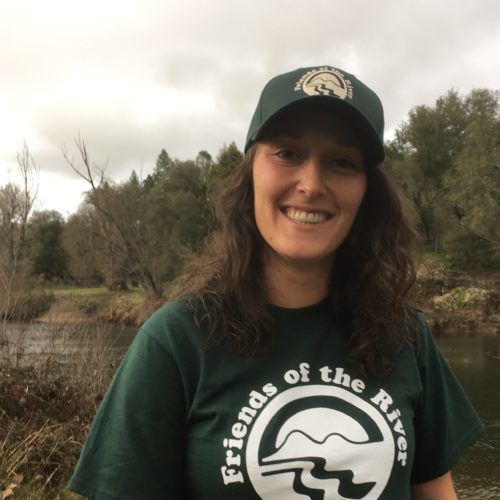Do you Know a Future River Hero?
If so Friends of the River has the opportunity of a lifetime for them.
Eric Wesselman, Executive Director
FOR is launching the River Advocate Training School this January to training the next generation of river advocates in the arts of grassroots organizing, river ecology, and policy activism. The intensive training academy will feature both inspirational presentations as well as in-depth education seminars. This training is free to all applicants accepted into the program and there are 15 openings available. FOR is targeting students and outreach efforts at UC Davis, Sacramento State, Stanford, Chico State, The Los Rios Community College District Campuses, UC Merced, Fresno State, CSU East Bay, and Stanislaus State. In addition, there are openings for community-based participants in the Bay Area, Central Valley, and Sierra Foothills as well as individuals with river-based organizations from across California. Graduates of the training will be able access funding for local outreach and organizing projects from FOR and campus based participants qualify for stipends from FOR during the school term.
Applications are due by November 23rd.
More details and the application can be found at: www.friendsoftheriver.org/riverrats
California River Awards: A Night to Remember!
Mandi Garcia, Development Director
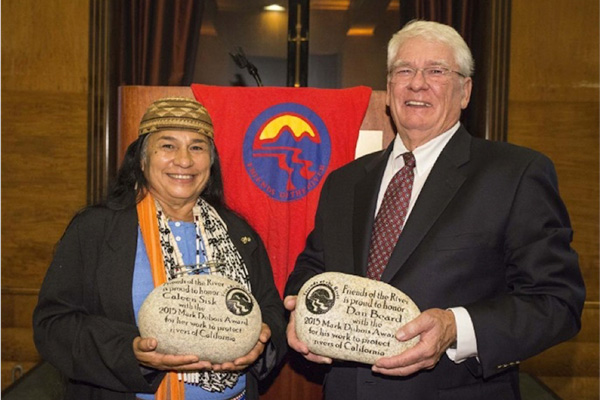 Friends of the River’s California River Awards at the City Club of San Francisco on October 23 was a resounding success! The evening featured fantastic food and wine, live entertainment, and a fabulous live and silent auction, all in support of California’s beautiful rivers. We were joined by almost 200 sponsors and guests in celebration of our rivers and to honor the heroes that keep them free and flowing.
Friends of the River’s California River Awards at the City Club of San Francisco on October 23 was a resounding success! The evening featured fantastic food and wine, live entertainment, and a fabulous live and silent auction, all in support of California’s beautiful rivers. We were joined by almost 200 sponsors and guests in celebration of our rivers and to honor the heroes that keep them free and flowing.
Mark Dubois Honorees
This year FOR honored Caleen Sisk and Dan Beard. Caleen is the Spiritual Leader and Tribal Chief of the Winnemem Wintu Tribe who practice their traditional culture ceremonies in their territory along the McCloud River in Northern California. She has focused on maintaining the cultural and religious traditions of the Tribe as well as advocating for California salmon restoration. FOR is working with the Winnemem Wintu to save the McCloud and upper Sacramento Rivers from plans to raise Shasta Dam.
Dan Beard penned the recently released book Deadbeat Dams, and declared “the dam building era is now over” while serving as the Commissioner of the U.S. Bureau of Reclamation in President Clinton’s first term. Dan reorganized the Bureau to pivot away from dam building to promoting water conservation and environmental restoration. He also served as Staff Director for the House Interior Subcommittee on Water and Power where he helped advance the work of river champion, and former CRA honoree, Congressman George Miller.
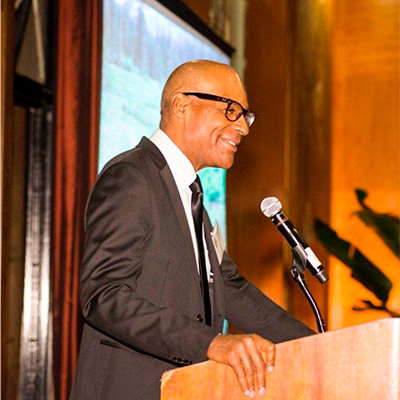 Special thanks to Michael Dorn for serving as our Emcee!
Special thanks to Michael Dorn for serving as our Emcee!
One would think that the man who bears one of the most unique accomplishments in Star Trek history—he has appeared as the same character in more hours of Star Trek than any other actor—would be instantly recognizable to the public. But thanks to the wigs and prosthetics he was forced to don as Worf, Michael Dorn is more likely to pass through a crowd unnoticed than any of his cast mates from Star Trek: The Next Generation or Star Trek: Deep Space Nine. That is, until he opens his mouth: Dorn’s distinctive baritone voice is always a surefire giveaway, and has been heard not only on TNG and DS9, but also in dozens of animated series, computer games and television commercials.
Thank You Michael!
Get Your Cameras Ready!
Johnnie Carlson, Operations Director
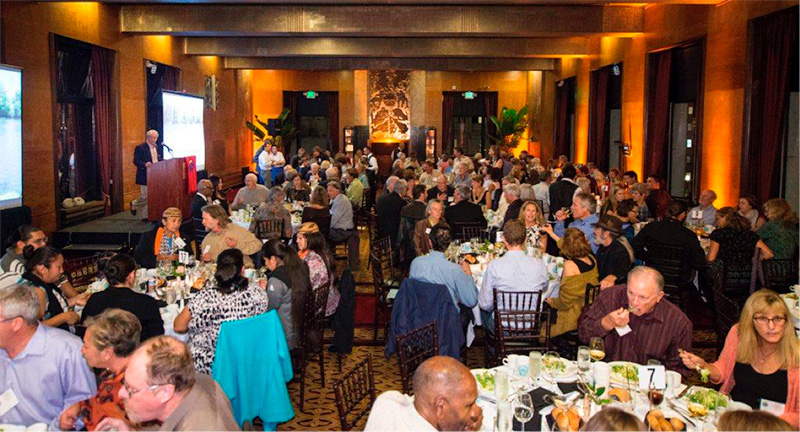
With the coming El Niño we might be in for a wet winter and beautiful spring wildflowers in a California river canyon with endangered rivers. Let’s make sure your out getting images or video of those special places so we can share majesty of these treasures here at FOR with others and the media! Share your images with info@friendsoftheriver.org.
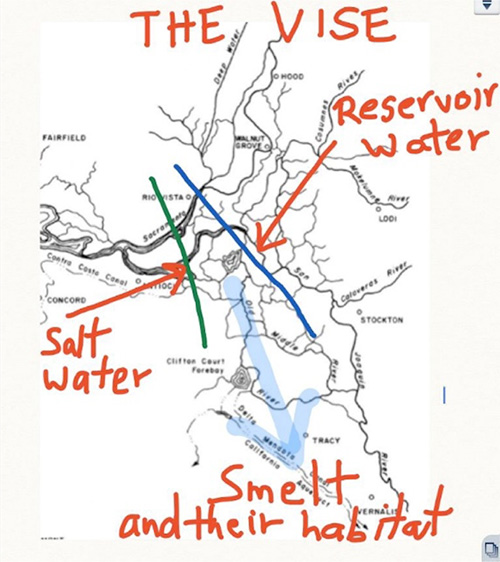 Progress in Delta Tunnels War
Progress in Delta Tunnels War
Bob Wright, Senior Counsel
The health of the San Francisco Bay-Delta is critically important. Friends of the River (FOR) is a David fighting many Goliaths in the ongoing war to save the Delta from the Water Tunnels. The project, previously called the Bay Delta Conservation Plan (BDCP) is now, after the positive features including wetlands restoration were dropped, called the California Water Fix. The Tunnels would divert enormous quantities of water from the Sacramento River near Clarksburg, California. As a result of this massive diversion, the freshwater that presently flows through designated critical habitats for crashing fish populations in the Sacramento River and sloughs to and through the Bay-Delta before being diverted for export at the south Delta, would no longer reach the Delta. The benefits of those freshwater flows for Delta water flows and water quality, fish, and fish habitat would be lost.
This is a long war. With the close of the Water Fix comment period on October 30, 2015, we have had some successes. Our work over the past two years in encouraging the Environmental Protection Agency (EPA) to stand up for the National Environmental Policy Act (NEPA) and water quality helped result in the October 30, 2015 EPA review grade given to the Water Fix Supplemental Draft Environmental Impact Statement (SDEIS). The EPA gave the Water Fix Plan’s SDEIS a rating of “’3’ Inadequate” (letter, p. 4) which is the EPA’s failing grade for a federal EIS. The EPA concluded that deferral of water flow management decisions means “that any attempt to describe the environmental impacts of the project is necessarily incomplete.” (Letter, p. 2). EPA also found that the “SDEIS predicts a loss of valuable aquatic habitat for many fish species in the Delta and upstream tributaries due to the combined effects of the Water Fix project, CVP/SWP exports, climate change, and increased water diversions upstream of the Delta in the Sacramento River Basin. These species have experienced sharp population declines in the last decade and showed record low abundance over the last five years.”
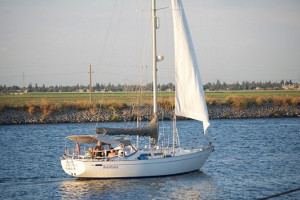 We have already addressed EPA’s failing grade in our joint letter with the Environmental Water Caucus to the Army Corps of Engineers on November 4, 2015. There, we declare that since the Draft environmental document prepared by Reclamation and the Department of Water Resources is proven to be inadequate as determined by the EPA, the Corps will have to prepare its own legally sufficient Draft EIS before considering the permit applications filed with the Corps that would advance the Water Tunnels. We will soon be taking the same position in the State Water Resources Control Board (SWRCB) process that will determine whether to permit the new upstream diversions for the Tunnels.
We have already addressed EPA’s failing grade in our joint letter with the Environmental Water Caucus to the Army Corps of Engineers on November 4, 2015. There, we declare that since the Draft environmental document prepared by Reclamation and the Department of Water Resources is proven to be inadequate as determined by the EPA, the Corps will have to prepare its own legally sufficient Draft EIS before considering the permit applications filed with the Corps that would advance the Water Tunnels. We will soon be taking the same position in the State Water Resources Control Board (SWRCB) process that will determine whether to permit the new upstream diversions for the Tunnels.
We have also for almost three years now, been calling upon the federal and state agencies involved in the BDCP/ Water Fix process, to complete the required consultations and obtain biological opinions from the National Marine Fisheries Service and U.S. Fish and Wildlife Service under §7 of the Endangered Species Act (ESA) before rather than after making decisions whether to approve the Tunnels. FOR was the first organization to recently call upon the SWRCB to obtain ESA compliance before rather than after making its decision whether to approve the new upstream points of diversion necessary to construct and operate the Water Tunnels. We have been successful. On October 30, 2015, the SWRCB announced that Part II of the hearing, focusing on the potential effects of the diversion change on fish and wildlife and recreational uses “is not planned to commence until after the environmental and endangered species act compliance processes are completed.”
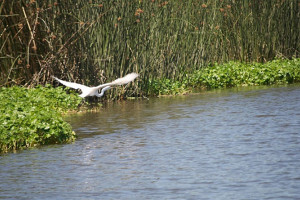 Happily, the bullets in this war over the Tunnels are words and paper. But the outcome of the war will indeed be a matter of life and death for endangered and threatened fish species including Winter-run and spring-run Chinook Salmon. We win some battles, we lose some battles. The fight goes on and every FOR member and supporter can have a place in the struggle to win the battle for the hearts and minds of Californians. The growing public opposition to the Tunnels has been a huge factor in this being a fight rather than a cakewalk for the Tunnels and their supporters. The other side has money and power. What we have is the truth— the Water Tunnels would be very bad for northern California rivers and the Delta.
Happily, the bullets in this war over the Tunnels are words and paper. But the outcome of the war will indeed be a matter of life and death for endangered and threatened fish species including Winter-run and spring-run Chinook Salmon. We win some battles, we lose some battles. The fight goes on and every FOR member and supporter can have a place in the struggle to win the battle for the hearts and minds of Californians. The growing public opposition to the Tunnels has been a huge factor in this being a fight rather than a cakewalk for the Tunnels and their supporters. The other side has money and power. What we have is the truth— the Water Tunnels would be very bad for northern California rivers and the Delta.
Make a River Smile this Holiday Season! FOR’s Outreach & Office Wish List
Johnnie Carlson, Operations Director
Working with a non-profit budget means always striving to keep overhead and expenses low to ensure that our river protection and outreach programs are always our top priority. FOR has postponed or decided to forgo the purchase of the following items – and maybe you can help us! If you have an item(s) on our wish list that you can donate, or would like to purchase and donate to FOR contact Johnnie Carlson at (888) 464-2477 extension 211 or by email to: jcarlson@friendsoftheriver.org
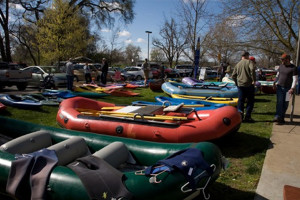 Outreach Items
Outreach Items
Roll-a-tables (useable)
Self-bailing Rafts (useable another few seasons)
Flat-water Canoes (useable)
Flat-water Kayaks (useable)
Adult Universal PFD’s (new or very good condition)
Whitewater Helmets (safe & useable)
Guest Rafting Paddles (decent shape)
Canoe Paddles (decent shape)
Kayak Paddles (decent shape)
2×6 or 3×8 folding tables (solid & in good condition)
Office Equipment/Technology
MacBook Pro (2012 or later – refurbished is OK)
LED DVD/Computer Projector (working)
GoPro Hero Camera (version 2 or better)
GoPro Hero accessories (mounts, straps, battery, etc)
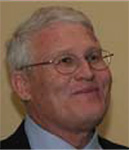 River Currents
River Currents
Ron Stork, Policy Director
Deadbeat Dams go on National TV
I’m glad the PBS News Hour was able to do a seven-minute report-from-the-field piece on the California dam controversies. And I’m glad they included some critics — including me.
After all, the U.S. Senate and House hearings on the California drought bills (H.R. 2898 and S. 1894) that “authorize” construction of new “storage” — i.e., more river landscapes destroyed for little gain — failed to include anyone opposed to such things.
But someone has to tell the truth: that building dams on already overtapped rivers gains little for the huge investment. Someone has to report that the dams are popular in some circles only because they are being built with other people’s money. But as far as the press coverage for the last few years, no one did.
Common sense voices were not in demand. And so they weren’t heard.
The result, $2.7 billion in free money for dams in Proposition 1 passed by the voters, and the California drought bills poised to be passed in the United States Congress that “authorize” any Federal dam that can get a 50% cost-sharing partner (and a 25% Federal subsidy for non-Federal dams from Uncle Sam too — and a special federal bank to help finance your dam).
The News Hour piece, as short as it was, was the kind of initial-investigation journalism that should have been all over the California media before the California voters passed the water bond. In fact it should have been there when the legislature considered putting the water bond on the ballot.
Well, the second hit to California rivers could be voted on in the Congress in the next month or two (the California drought bills folded into Senator Murkowski’s omnibus western water bill). It’s long past time for friends of rivers in California to start knocking on the doors of local media throughout the state. There’s a story there, and many people need to tell it. Politics should not be just a spectator sport.
The drought bills perpetuate the magical thinking that after so many years of damming rivers in this state that we can dam our way to Paradise. We can’t, and the sooner we realize this, the sooner we can tackle water and river problems in this state successfully.
Crazy Times in the U.S. Congress, the Local Angle
Well, the lunatics took control of the asylum back in our nation’s capital some time ago, and the state’s water buffalos plan to take full advantage.
H.R. 8, a measure crafted by the Pacific Gas & Electric Company (PG&E) and the National Hydropower Association to cripple the voices of Federal natural resources and land managers and the states in the licensing and relicensing of non-Federal dams, is now expected to be voted on in December.
I talked about H.R. 8 in the last River Advocate.
Everyone’s Congressional representative will have a chance to stand up for rivers when this comes up for a full House vote, but potentially the most important Congressman on this one is Stockton’s Jerry McNerney. He carried key amendments sought by PG&E in committee. Getting Jerry to reverse course would send a message to PG&E that folks are not being fooled or they can’t stay fooled for long.
And then there’s the National Hydropower Association annual meeting, this time at the headquarters of the Sacramento Municipal Utility District in the state’s capital, on December 8. That’s just before the height of the holiday season, a fine time to let the association know that H.R. 8 is not exactly the kind of Christmas present that this country needs.
The lunatics may control the asylum, but citizens do have the right to talk to the press, elected officials, and public and private boards of directors. It’s probably time to do just that.
Metropolitan moves
The state’s water buffalos are nothing if not predictable. In a move to quiet criticism of potential moves to repeal protection of the McCloud River, back in 2007 the Westlands Water District paid $33 million to buy land along the McCloud River, including the exclusive Bollibakka Fly Fishing Club.
Now the giant wholesaler the Metropolitan Water District of Southern California is angling to buy five Delta islands (read the Sacramento Bee article from the 10th), the potential price tag: $150 to $240 million. It’s hard to read that news without being reminded of the Los Angeles Department of Water and Power’s successful effort to buy up much of the private property in the then verdant Owens Valley to smooth the way for LA’s effort to harness the Valley’s water resources for developers in the San Fernando Valley in southern California. They made a movie about it, a dark one called Chinatown.


